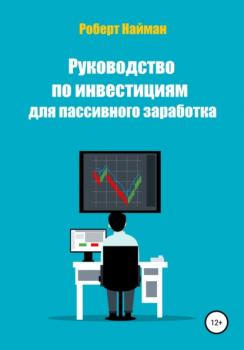Ценные бумаги, инвестиции
Различные книги в жанре Ценные бумаги, инвестицииDer Diplomaten-Pass
Es gibt viele Gerüchte, Unwahrheiten und Fehlinformationen über dieses sagenumwobene Dokument.
In diesem Werk erfahren Sie die volle Wahrheit über den Diplomaten-Pass sowie über diplomatische Positionen als auch über den Titel und Posten eines Konsuls bzw. Honorarkonsuls.
Das obskure Objekt der Begierde hat einen blauen Einband. In der Mitte, gravitätisch, der Bundesadler. Darunter, in goldenen Großbuchstaben, das Wort, das den Unterschied macht. Das staatliche Elite vom Wahlvolk trennt, Privilegierte von Normalos. Das nach exklusiven Reisen und Kamingesprächen klingt: DIPLOMATENPASS.
Auch der ehemalige Abgeordnete Sebastian Edathy hatte einen. Das war niemandem so recht bewusst, bis der Sozialdemokrat im Ausland abtauchte. Plötzlich war sein Diplomatenpass in den Schlagzeilen – Edathy hatte ihn nicht abgeliefert, als er am 7. Februar von seinem Mandat zurückgetreten war. Nutzte er ihn, um unbehelligt zu reisen? Erst am 12. März erreichte ein Einschreiben die Bundestagsverwaltung. Darin: Edathys Diplomatenpass.
Der Vorgang ist nur eine Fußnote des Skandals – erinnerte die Öffentlichkeit aber an den erstaunlichen Fakt, dass deutsche Bundestagsabgeordnete einen Diplomatenpass führen dürfen. Die Frage ist: Warum eigentlich? Wozu nutzt der Pass? Noch ein Goodie im First-Class-Paket für Abgeordnete – neben Fuhrpark, Bahncard 100 und steuerfreier Kostenpauschale?
Sie werden in diesem Werk ausführlich an dieses Thema herangeführt und Ihnen wird aufgezeigt, wie auch Sie in den Besitz eines solchen Passes kommen können und welche Voraussetzungen Sie hierfür erfüllen müssen.
Начни зарабатывать на инвестировании
Инвестиции и инвестирование: что это такое и для чего необходимо? Главные определения, которые помогут вам вникнуть в рассматриваемую тему: инвестиция представляет собой вложение капитала с целью получения прибыли; инвестирование является процессом увеличения капитала, приносящего прибыль; инвестиционные инструменты – это виды вложений для получения дохода.
Руководство по инвестициям для пассивного заработка
Выбор правильного класса активов зависит от ваших инвестиционных целей и других связанных факторов. Если вы хотите инвестировать свои деньги максимально безопасно и без потерь, следует рассмотреть такие инвестиционные продукты, как срочные депозиты и депозиты овернайт. Однако на данный момент здесь можно ожидать небольшой или нулевой отдачи. Если, с другой стороны, у вас более длительный инвестиционный горизонт, и вы готовы взять на себя определенный риск для получения прибыли, то такие ценные бумаги, как акции, облигации, фонды или инвестиция в недвижимость.
Топ 10 криптомонет. Перспективы инвестиций
Вы знаете сколько сейчас криптовалют? Какие есть проекты? Куда вкладывать? Если хоть на один из этих вопросов вы не можете ответить утвердительно, то эта книга будет вам полезна. По сути, это исследование на основе данных крупнейших криптобирж и аналитических сайтов. Всю информацию вы можете проверить на coinmarketcap и investing, а также сайтах самих криптопроектов, но они не дают системы. Я столько раз себе обещал сделать что-то подобное, что понял – лучший способ исполнить перед собой обещание, это написать книгу. Книга писалась в мае 2021 года, и проекты в ней распределены на основании размера капитализации.
Психология инвестирования. Как перестать делать глупости со своими деньгами
Если вы хотите стать успешным инвестором, вы должны знать в лицо своих внутренних врагов: сомнение, панику, страх, нетерпение, желание копировать других, жадность, гнев. Не сумев справиться или договориться с ними, вы обязательно проиграете и потеряете деньги. Эмоции заложены в нас природой, но человек отличается от животного тем, что умеет их обуздать. Опытный инвестиционный консультант и блестящий визуализатор Карл Ричардс помогает найти ответы на важные вопросы: как не терять самообладания; как правильно распределять активы и энергию – где сэкономить, а куда вложить как можно больше. Из его книги вы узнаете, как избегать ловушек, поджидающих новичков и профессионалов; осознаете, достижима ли желаемая цель; сможете улучшить и упростить свои отношения с финансами. Большинство советов автор иллюстрирует набросками «на салфетках». Эти простые, понятные и прекрасно запоминающиеся схемки отлично помогают усвоить сложные финансовые концепции – недаром они снискали их автору любовь сотен тысяч читателей его книг, блога и еженедельной колонки Sketch Guy в The New York Times.
Психология инвестирования. Как перестать делать глупости со своими деньгами
Если вы хотите стать успешным инвестором, вы должны знать в лицо своих внутренних врагов: сомнение, панику, страх, нетерпение, желание копировать других, жадность, гнев. Не сумев справиться или договориться с ними, вы обязательно проиграете и потеряете деньги. Эмоции заложены в нас природой, но человек отличается от животного тем, что умеет их обуздать. Опытный инвестиционный консультант Карл Ричардс помогает найти ответы на важные вопросы: как не терять самообладания; как правильно распределять активы и энергию – где сэкономить, а куда вложить как можно больше. Из этой аудиокниги вы узнаете, как избегать ловушек, поджидающих новичков и профессионалов; осознаете, достижима ли желаемая цель; сможете улучшить и упростить свои отношения с финансами. Стиль автора снискал ему симпатию сотен тысяч читателей его книг, блога и еженедельной колонки Sketch Guy в The New York Times.
The Successful Trader's Guide to Money Management
Discover how to maximize the effectiveness of your trading techniques by applying the right money management techniques Money management is a central element of trading the financial markets, especially in uncertain times. Yet investors often misinterpret the central concepts of money management. To manage risk and obtain optimal rewards from your trades, you will benefit from a deeper understanding of how the professionals manage money. The Successful Trader’s Guide to Money Management describes the operating methods that seasoned investors use. With this book, you’ll avoid the common mistake of focusing too much on entry levels and stop-losses, and you’ll learn to consider the impact of proper money management on your final portfolio results. Successful traders focus on risk management, avoiding opening positions that are too large with respect to the total capital they have available. Packed with practical examples and with special focus on money management or position-sizing, The Successful Trader's Guide to Money Management offers a comprehensive coverage of widely practiced risk management models, examining their strengths and weaknesses. You will learn how to use the most effective operating models, including the Fixed Fractional, Fixed Ratio, and Percent Volatility models. This book also provides a thorough analysis of portfolio management models. These essential tips will nudge you toward a more winning position as you enter your next trades. Learn how the professionals manage money and avoid common trading mistakes Design a trading system that minimizes risk and maximizes reward through correct position sizing Understand the most important money and portfolio management models, including Fixed Ratio, Percent Volatility, Fixed Fractional, and more Equip yourself to trade smarter, individually or with a broker, on equity, derivatives and Forex markets For individual and institutional investors alike, this book is a ticket to more solid trading strategy, especially in uncertain times.
The Finance Curse
Shaxson is a highly regarded expert on international finance who has written for publications including Vanity Fair , the Economist , and the Financial Times . His work on tax havens gained international attention in the wake of the Panama and Paradise Papers as Shaxson was one of few journalists who had written extensively on the subject before these scandals and had warned of the huge scale of this issue. In 2012, the International Tax Review named him as one of the “Global Tax 50” most influential people in international tax. The Finance Curse is a shocking and important book—controversially, Shaxson argues that the financial sector, which makes mind-boggling profits at the expense of businesses, their employees, and the tax payer, is a net negative for the economy. Shaxson’s thesis is attention-grabbing: he argues the idea that countries and states must give tax breaks and other financial incentives to banks and big business in the name of “competitivity,” to avoid them fleeing for more accommodating climes, is a falsehood. Shaxson also discusses the brain drain to finance that Western democracies suffer—young men and women who could be contributing in business or the public sector are drawn to an industry that produces little good for the business world at large. These themes and the many other talking points in the book are sure to get him attention in print media and radio. The Finance Curse grounds its argument historically, showing how we got to the point where the banks and big business determine our tax code and much of our corporate policy. Shaxson reminds us that it wasn't always like this and shows us how through regulation and rebalancing of political priorities we might be able to shift the power back towards businesses that are engaged in society and produce something towards the public good, as well as the public sector. Shaxson’s book uses stories from the great rise of the banks in the twentieth century to strengthen his argument. He also talks about the little-known history of some of the first purely speculative financial instruments, the so-called Eurobonds which were first issued in 1963 and proved resistant to regulation. As we enter a time of low unemployment, increased deregulation, and record highs in the financial indices, it is important to keep a keen eye on the workings on the financial world, as well as on questions of wealth redistribution and the future of American business. Shaxson’s books is a timely look at all of these subjects. For fans of Michael Lewis, Daniel Kahneman, Niall Ferguson, and Paul Krugman.









